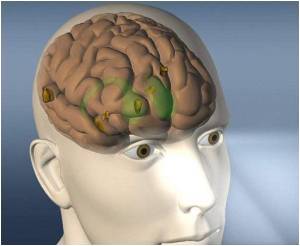Magnetic stimulators help repair swallowing functions in stroke patients, say researchers from the University's Robinson Institute.

Speech pathologist Dr Sebastian Doeltgen, who is part of the University's Neuromotor Plasticity & Development Research Group, has been awarded $300,000 in Federal Government funding to investigate revolutionary techniques to treat swallowing disorders.
"About 60,000 people suffer strokes each year in Australia alone, with more than 35,000 of these initially experiencing problems with swallowing. That is a huge part of the stroke population who have difficulty eating or drinking and may have to be fed through a tube," he says.
"There are up to 32 muscle pairs involved in swallowing and all have to work in perfect harmony to get food and drink from the lips down into the stomach. This activity places a huge demand on the brain.
"When people have strokes, the parts of their brains that control the muscles in the mouth and throat are often damaged and we have to find ways to reactivate these regions. Using the magnetic stimulators we can create electrical currents in the brain that stimulate the nerve cells which we believe help control swallowing," he says.
Dr Doeltgen's group is the only one in Australia – and one of only a handful in the world – using magnetic stimulation and brain exercises to develop new rehabilitation approaches for swallowing disorders.
Advertisement
"As strokes are the second biggest killer in Australia and a leading cause of disability worldwide, the cost to the health care system as well as quality of life of those affected is enormous," Dr Doeltgen says.
Advertisement
Source-Eurekalert















